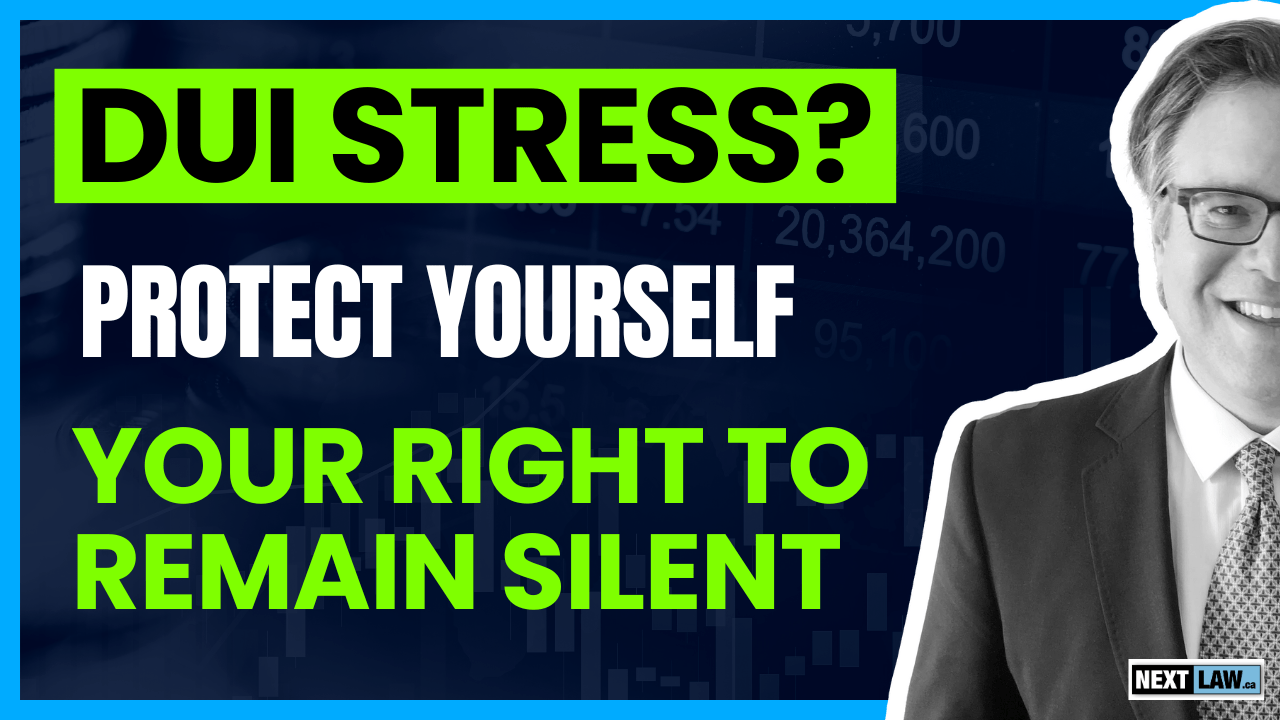Understanding Your Rights in a DUI Charge
- When you’re facing a DUI charge, things can get stressful and confusing fast.
- But one advantage you have is your right to remain silent.
- In this blog, I’m going to break down how your right to remain silent can significantly benefit you in defending your DUI charge.
Legal Right to Silence in DUI Cases
- In Canada, when facing any criminal charge, including a DUI, you have the legal right to remain silent during your interactions with the police.
- And your right to remain silent applies to all DUI charges including Over 80, Impaired Operation of a Vehicle and Refusal to Take a Breath Test.
- The primary benefit of staying silent is to avoid the risk of unintentionally admitting guilt or confessing to a DUI.
The Challenge of Staying Silent
- Staying silent when you’re interacting with police is easier said than done.
- It’s natural to want to declare your innocence and defend yourself when talking to the police.
- And that human nature often motivates people to speak to the Police when legally they don’t have to.
- And, most often, speaking to the police will hurt your legal case.
The Risks of Speaking to Police
- While no one intends to admit to a crime, it’s important to understand the context of when the police are speaking with you.
- You’re likely in a very stressful situation. And compounding that stress is that you don’t have access to all the information surrounding your situation.
- In this context, your statements will often lead to inconsistencies. And these inconsistencies, no matter how minor, can hurt your legal defence.
Police Questioning Techniques and Your Defense
- Even if you’re confident in your ability to rationally speak with the police, you need to understand the police are trained to question you in a way that is not designed to help you.
- Their techniques are designed to raise doubt in your story, even if you are innocent and telling the truth.
Silence as a Strategy in DUI Defense
- Using your right to remain silent can never hurt your case.
- There is no situation where your right to remain silent hurts you. Many clients are under the belief that staying silent may indicate guilt. But that is simply not true. Staying silent does not imply guilt in the Canadian criminal court system.
Do I have the right to remain silent if charged with a DUI in Canada?
Yes, in Canada, you have a legal right to remain silent when facing any criminal charge, including a DUI. This right applies to all types of DUI charges, such as Over 80, Impaired Operation of a Vehicle, and Refusal to Take a Breath Test. The primary benefit of exercising this right is to avoid unintentionally admitting guilt or confessing to the DUI, which can protect you in legal proceedings.
Why should I choose to remain silent during a DUI investigation?
Remaining silent during a DUI investigation is crucial because speaking to the police, especially without legal counsel, can often lead to inadvertent self-incrimination. In the stress of police interaction, you may not have access to all relevant information, leading to inconsistent statements that could harm your legal defense. Police are trained in questioning techniques that aren’t designed to help you, and may raise doubts about your story even if you're innocent. Staying silent ensures you don't provide any statements that could be used against you in court. Remember, staying silent does not imply guilt in the Canadian criminal justice system.



